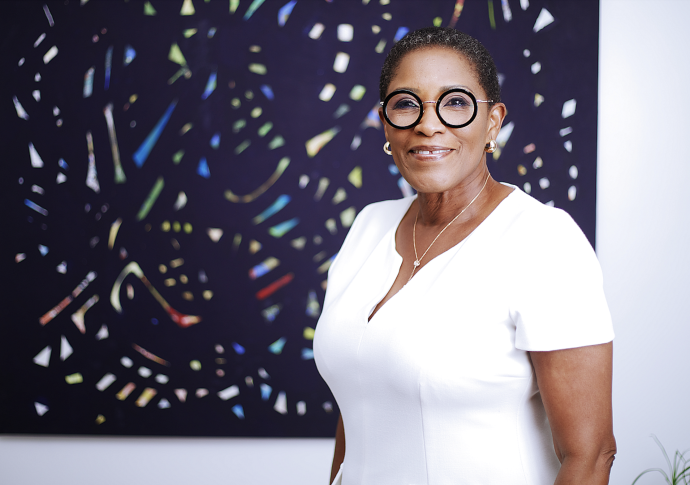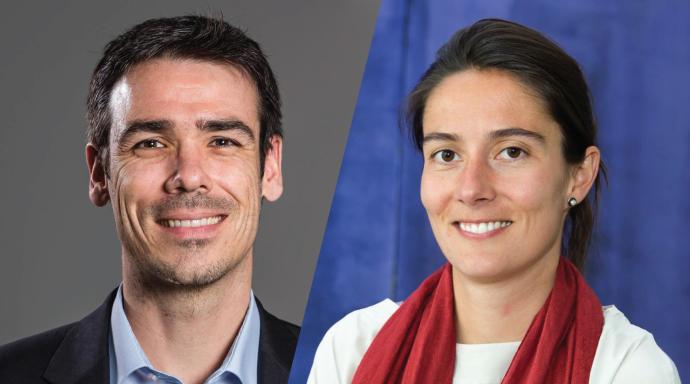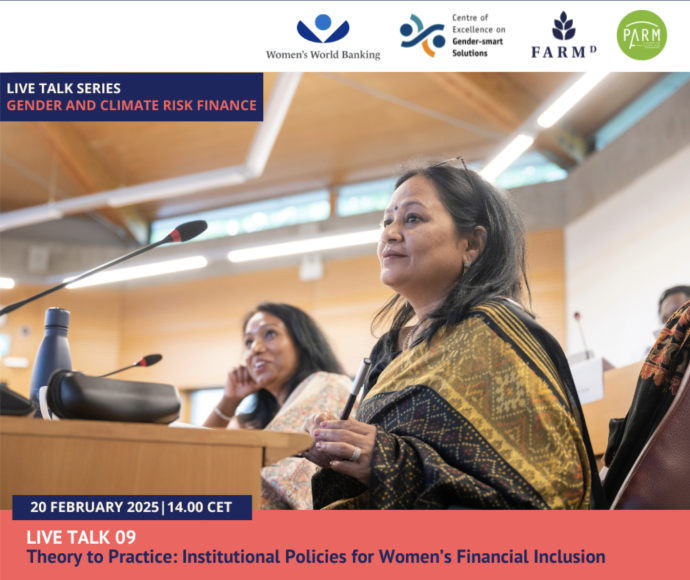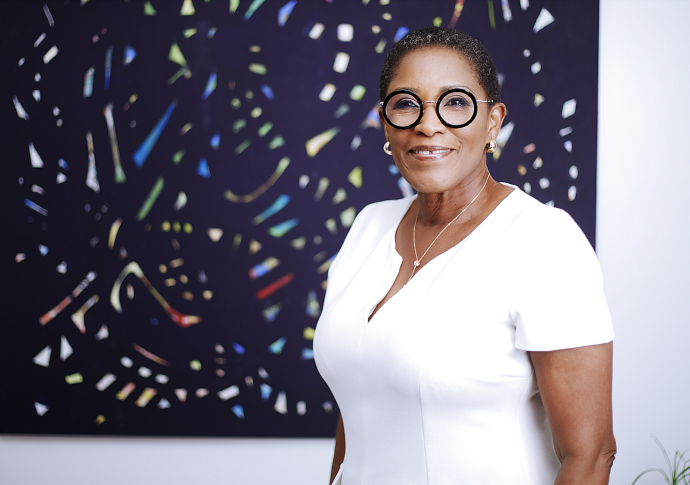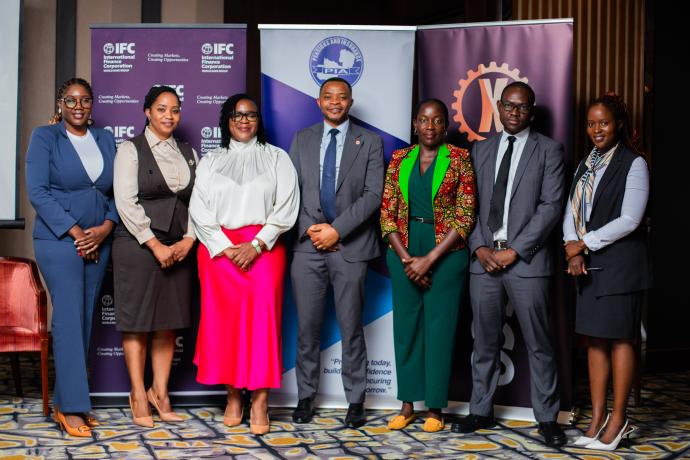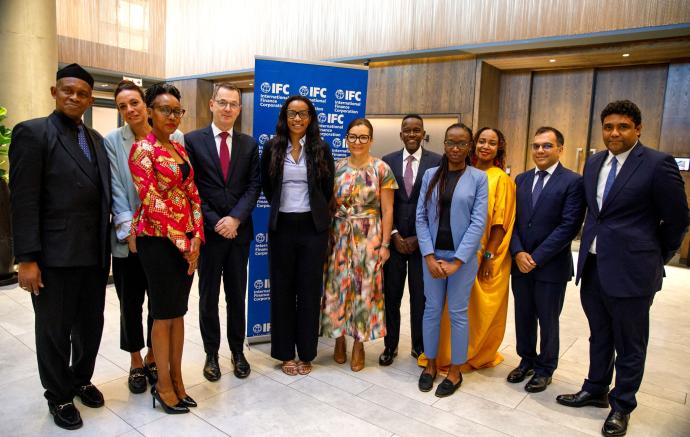As part of its commitment to inclusive insurance, the Global Index Insurance Facility (GIIF) spoke with Evelyne FASSINOU, Member of the Executive Committee of FANAF, about the recently launched joint FANAF–IFC study. We sincerely thank her for collaborating with GIIF and sharing the valuable insights that made this piece possible. 1. Evelyne, congratulations on the recent launch of the joint FANAF–IFC study. To start, could you tell us what inspired this collaboration? Evelyne FASSINOU: When Rosalie Logon and I were elected to the Executive Committee of FANAF in February 2020, we quickly felt
Blog
Spotlight on Public-Private Collaboration: Swiss Re on Advancing Disaster Risk Finance at the DRF Academy – Executive Education Program As countries continue to face rising climate and disaster risks, the role of public-private partnerships in shaping effective financial resilience strategies has never been more critical. During the recent Disaster Risk Finance (DRF) Academy – Executive Education program, participants from around the world gathered to explore actionable approaches for scaling up disaster and climate risk finance, with a strong focus on collaboration, sustainability, and
On February 21, 2025, the ninth session of the LIVE TALK series, From Theory to Practice: Advancing Women’s Financial Inclusion , brought together a diverse group of attendees to explore solutions for bridging the gender gap in financial inclusion. Co-organized in collaboration with FARM-D (hosted by PARM), Access to Insurance Initiative (A2ii) , and Women's World Banking , and the Centre of Excellence on Gender-Smart Solutions , the session focused on the transformative role of leadership, sex-disaggregated data, and policy development in driving gender-sensitive financial systems. The
Entretien avec Evelyne FASSINOU, Membre du Comité Exécutif de la FANAF Dans le cadre de son engagement en faveur de l’assurance inclusive, le GIIF (Global Index Insurance Facility) s’est entretenu avec Evelyne FASSINOU, Membre du Comité Exécutif de la FANAF, à propos de l’étude conjointe FANAF–IFC récemment lancée. Nous la remercions chaleureusement pour sa collaboration et pour avoir partagé ses perspectives éclairantes, qui ont rendu possible cet entretien. 1. Evelyne, félicitations pour le lancement récent de l’étude conjointe FANAF–IFC. Pour commencer, pourriez-vous nous expliquer ce qui a
21
Apr
Question: From your perspective as a specialized agricultural insurance pool in Turkey, what are the primary obstacles faced by TARSİM in providing effective climate insurance for farmers, and how can these challenges be mitigated? R: TARSİM is a state-supported system that provides protection for farmers’ sources of income—such as crops, greenhouses, aquaculture, and livestock—against various risks. It covers their losses, ensures the sustainability of agricultural production, and operates as a non-profit organization committed to maintaining sustainable agricultural activities. E stablished
06
Mar
Gender gaps in financial inclusion remain a challenge in Zambia, with disparities in both access to financial services including insurance products, and limited leadership opportunities for women in the financial sector. Currently, only 39.1% of women have used insurance services compared to 60.9% of men , highlighting a gap in access to and use of affordable financial products and services. This disparity prevents women from protecting their businesses, families, and livelihoods from financial shocks. Addressing this gap is key to building a more resilient insurance sector and achieving
04
Mar
Johannesburg, South Africa – February 27, 2025 The International Finance Corporation (IFC) and African Risk Capacity Limited (ARC Ltd.) have signed a landmark agreement to enhance climate risk insurance solutions for smallholder farmers and agricultural value chains across Africa. This partnership aims to scale up agricultural insurance as a critical tool for de-risking investments and increasing resilience to climate change impacts. The signing ceremony took place in Johannesburg, South Africa, and was formalized by Sergio Pimenta , Regional Vice President for Africa at IFC, and Lesley Ndlovu
30
Jan
From October 21–25, 2024, over 500 global experts convened in Kathmandu, Nepal, for the International Conference on Inclusive Insurance (ICII). The event united stakeholders from 43 countries to explore pathways for accelerating the growth and viability of inclusive insurance in emerging markets. With discussions ranging from climate risk and gender-focused strategies to digital innovation and microinsurance trends, the ICII offered a vital platform to advance the agenda of inclusive insurance as a tool for economic resilience and empowerment. Inclusive Insurance: A Catalyst for Sustainable
24
Jan
Global Shield’s Vision for Climate Resilience In 2024, the Global Shield against Climate Risks continued its mission of addressing financial protection gaps in climate-vulnerable countries through innovative pre-arranged finance mechanisms. This G7-V20 initiative reaffirms its commitment to building resilience against climate and disaster risks, marking significant milestones and setting ambitious goals for the future. Key Achievements in 2024 Ghana’s First Drought Insurance Policy Through an inclusive, country-led process coordinated by the Global Shield Secretariat, the African Risk Capacity
27
Jan
Florence Boupda Ngueda , IFC-FIG Global Sector Manager for Insurance, Housing and DARP, joined over 1,000 financial industry leaders at the 2024 Africa Financial Summit , held in December 2024 in Morocco. The two-day event brought together a diverse group of stakeholders – including bankers, insurers, fintech representatives, capital markets experts, mobile money operators, as well as policymakers and regulators from across Africa and beyond – to explore innovative approaches to building a resilient financial services industry across the continent. A highlight of the event was the panel

